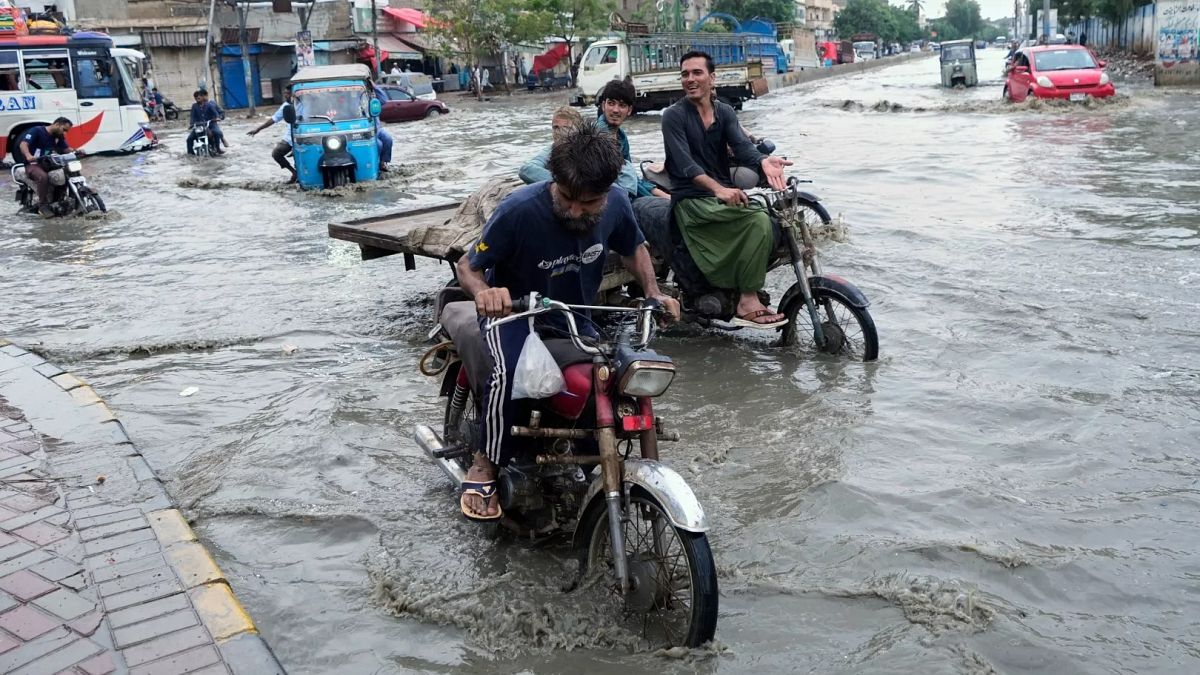Published on
People in Pakistan searched remote areas for bodies swept away by flash flooding as the death toll climbed to more than 300 on Tuesday.
More than 150 people are still missing in the district of Buner in Khyber Pakhtunkhwa province after the flooding on Friday.
A changing climate has made residents of northern Pakistan’s river-carved mountainous areas more vulnerable to sudden, heavy rains.
Villagers said there had been no warnings broadcast from mosque loudspeakers, a traditional method for alerting locals about emergencies in remote areas.
The government said the sudden downpour was so intense that the deluge struck before residents could be informed.
On Sunday, provincial chief minister Ali Amin Gandapur said many deaths could have been avoided if residents had not built homes along waterways.
He said the government would encourage displaced families to relocate to safer areas, where they would be assisted in rebuilding homes.
Intense monsoon rains
Pakistan has seen higher-than-normal monsoon rains since 26 June that have killed at least 645 people across the country, with 300 deaths in the northwest.
The National Disaster Management Authority issued an alert for further flooding after new rains began on Sunday in many parts of the country.
In a statement, the military said the Pakistan Air Force played a key role in flood relief operations by airlifting 48 tons of NGO-provided relief goods from the port of Karachi to Peshawar, the regional capital.
It said the air force established an air bridge to ensure the swift delivery of supplies.
Prime Minister Shehbaz Sharif ordered authorities to accelerate recovery efforts in Buner, a district in Khyber Pakhtunkhwa province, where torrential rains and a cloudburst Friday killed at least 280 people, officials said on Tuesday.
Officials estimate flood-related damage to public and private property at more than 126 million rupees (€385,000), according to a government statement.
The UN humanitarian agency said it had mobilised groups in hard-hit areas where damaged roads and communication lines have cut off communities. Relief agencies were providing food, water and other aid.
Power restored
Meanwhile, 70% of electricity has been restored and damaged roads have been reopened in the north and northwest, officials said on Tuesday.
Information Minister Attaullah Tarar told a news conference that engineers were working to fully restore the electricity system that was knocked out by flooding last week.
Most roads have been cleared, facilitating the supply of food and other essential items to flood-affected areas, he said.
In 2022, catastrophic floods linked to climate change killed nearly 1,700 people in Pakistan and left hundreds of thousands homeless.
Additional sources • AP

